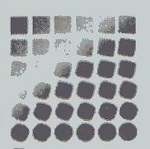
The transformation problem asks how can equal magnitudes of capital, but variable quantities of labour, give equal rates of profit if the law of value is operative. This debate centres on the problem of the transformation of values into prices, which for some (Yaffe) represents a Bourgeois attempt to correct Marx. This comes from neo-Ricardian theorists like Bortkiewicz. Yaffe argues that it is the failure to understand Chapter 1 of Capital that results in the terrible confusion in these various groups over the question of price. This confusion rests on the substance and magnitude of value. Yaffe argues further that most of these thinkers wish to dump the distinction between productive and unproductive labour. Thus they represent just variations on the theme of Bortkiewicz, that is the distinction between the production of basic and luxury goods.
In Volume 1 of Capital there is no difference made between capital in general and individual capitals:
'Sweezy is quite wrong when he says Volume 1 of capital assumes equal organic compositions of capital in all branches of production for the law of value to directly control the prices of commodities (Sweezy 109)' Yaffe (2)
Capital Volume 3 introduces the problem of many capitals and the concrete problems of the real process. To understand the transformation of value into price, several mediating stages need to be observed. Yaffe repeats a familiar criticism of Ricardian economics; that values are confused with prices. Marx's intermediary point is the 'price of production'. Competition equalises different rates of profit. The price of production is a modified form of value: the 'cost price' of a commodity, the quantity of social labour contained in it, plus a share of the unpaid labour of the annual average profit on the total capital invested in production.
Paper by Fred Mosely: The 'New Solution' to the Transformation Problem: a sympathetic critique (PDF)
Yaffe's article: Value and Price in Marx's Capital From RCG papers 3/4
